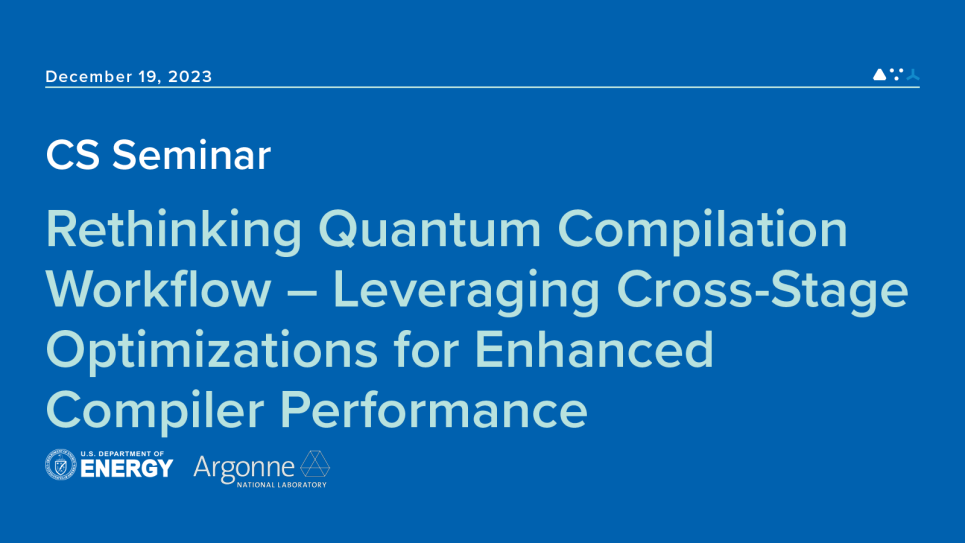
Rethinking Quantum Compilation Workflow – Leveraging Cross-Stage Optimizations for Enhanced Compiler Performance
Quantum compiler plays a critical role in practical quantum compilation, particularly in the Noise-Intermediate-Scale-Quantum (NISQ) era. With a limited number of qubits/connectivity and the presence of noisy quantum operations, it is crucial to leverage the quantum compiler to optimize circuits and map them onto the target hardware.
The talk will first provide an overview of the quantum compilation workflow and highlight the important stages in the process. The second and third parts of this talk will delve deeper into these stages, focusing on optimizing the gate decomposition and qubit routing stage by leveraging cross-stage optimizations.
At last, the talk will cover our recent work on Permutation-Aware Mapping (PAM). PAM exploits the optimization and mapping potential of synthesis with block-level routing heuristics. We show that the PAM framework produces better quality circuits than commercial quantum compilers: shorter by up to 68% (18% on average) fewer gates than Qiskit, up to 36% (9% on average) fewer gates than TKET. Additionally, PAM generates the best-known implementations for important algorithms like Quantum Fourier Transform (QFT) and Transverse Field Ising Model (TFIM).
Speaker Bio:
Ji Liu is a postdoctoral researcher at Argonne National Laboratory. His research focuses on improving the programmability, debuggability, and reliability of quantum computers. He currently works on quantum compiler optimization and noise mitigation techniques for NISQ computers. Prior to joining Argonne, he received his Ph.D. in Computer Engineering from North Carolina State University. Dr. Liu was the recipient of Special Oracle Award in IBM Quantum Challenge 2019. His work on qubit routing has been recognized by the Distinguished Artifact Award at HPCA 2022.
See upcoming and previous presentations at CS Seminar Series.